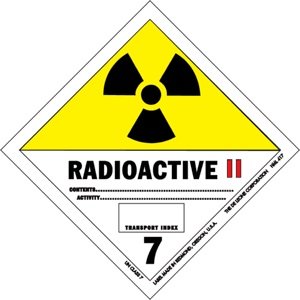Causality is a dogma
For modern science not everything needs to be caused. The ontological causality is a dogma already disproved by science, which only uses the methodological causality.
So far science knows the following uncaused and spontaneous events: radioactive decay, Casimir effect, quantum entanglement, quantum tunneling, the quantum vacuum fluctuations, Hawking radiation, virtual particles.

Proof in science does not require causation, only requires experimentation. The radioactive decay for example, we abandoned causality for it, but it is proven, even without a cause. And the absence of cause is the explanation most accepted today. We have no reason to assume the ontological and absolute causality, without having how to prove this dogma, and I don't think that one day we will be able to prove that causality is always a necessity.
It may seem counterintuitive to say that causality is not an absolute truth, but in reality it only exists in the macro world. When we go to the subatomic world, many of our intuitions are not worth anything.
Those who say that absolutely everything has a cause with no exception is in fact defending a dogma impossible to prove, and science can't adopt dogmas as truths.
hmm totally disagree... the radioactive decay has a cause.
It happens in nucleus which are not stable (too heavy too many neutrons for a certain number of protons etc... well causes are known).
You can't predict when a single atom will decay but you can predict very well when a whole bunch of them will decay (statistics... following Poisson) and at which rate.
Anyhow, you know it will happen because (hence causality) those atoms/nucleus are unstable...
You are confusing cause with necessary and sufficient condition. They are 2 different concepts. An unstable nucleous is a pre condition, not a cause.
Necessary and sufficient conditions are concepts from logic, but dealing with much the same thing, no? What a cause do is to provide the sufficient conditions for an event to happen.
I do agree that, as far as we know, there are events in the quantum level that happen randomly without a cause. But that might be understood a bit differently: their sufficient conditions are none, except for a probabilistic factor.
A cause is not a mere sufficient pre condition, it is a NECESSARY condition. Given a cause, the caused event must necessarily happen.
The necessary condition X of event A means, given event A, then X necessarily occurred. If cause is a necessary condition, then it is follows that all causes are necessary to its effects.
But that's not the case, since it is plausible that an effect A could be caused by a number of different causes. None of them could then be said to have occurred based of the observation of the effect. So, in my opinion, it is more sensible to relate cause with what provides sufficient conditions, not with necessary conditions.
All causes are necessary to its effects, provided the effects are caused. That is the problem, not all effects need a cause, but just need a sufficient condition. In the case of radioactive decay, it needs a sufficient condition, not necessarily a necessary condition (cause).
But how do you prove there is no underlying mechanism?
Science is still all about proof right? They didn't move those goalposts too?
As the great prophet Stevie Wonder said:
When you believe in things that you don't understand
Then you suffer
Superstition ain't the way
:)
No scientific proof is able to give you 100% certainty. If something is proven by science, it only means that it is more reasonable to believe than to not believe, and that is all. Science has already proven that it is not reasonable to believe that everything MUST have a cause.
But you have 0% proof of acausality. Show me any actual proof of no-mechanism.
You can't. It's logically impossible.
Think about it, it may take some time, it took me a few years.
There can be no proof of acausality - it's impossible to prove a negative.
The religion is strong with you Luke...
Modern science is a religion, and you've just proved me right again and again, with every comment.
You've done nothing to show you understand any of it really, you just take it as faith, because the priest-scientists said so. God bless you, but you are a bit gullible...
(Gull-able: Gulls will swallow any old rubbish that's tossed their way...)
Look on the bright side, it means there loads of information you can learn which is actually correct instead of being bullshit... Surely that's gotta ease the burden of being wrong this once? ;)
Of course I can prove a negative, but never with 100% certainty, but with reasonable certainty. For instance, if you say there is an elephant in your garage, and I look for the evidences and find none, it is very reasonable to say that there is no elephant, because of the total lack of evidence. 99% of the things you do not believe is because of the lack of evidence for it.
And modern science is not a religion, because it cannot adopt dogmas, but only proven (reasonable) truths.
So you trot out the old strawman fallacy... Elephant in the garage? Really?
Sigh...
All the best then, catch you later. :)
"You cannot prove a negative". Really?